Pediatric endoscopic procedures
What are pediatric endoscopic procedures?
Capsule Endoscopy (WCE) - A wireless capsule endoscopy (WCE) used to capture images of the intestine
Colonoscopy (lower endoscopy) - Exam of the colon (large intestine). Your child will need to be on a liquid diet for 1-2 days before the procedure. Also your child takes medicine to clean out the colon.
Esophagogastroduodenoscopy (EGD or upper endoscopy) - Exam of the esophagus, stomach and duodenum. The duodenum is part of the small intestine.
Flexible sigmoidoscopy - A short exam of the lower portion of the colon
What other procedures can be done during a pediatric endoscopic procedure?
Biopsy - A tiny piece of the inside layer of the digestive tract is removed for examination under the microscope. (This is usually done.)
Dilatation - Stretching out a narrowed area
Polypectomy - Removal of a polyp, a small growth, using a special wire.
What can I expect with a pediatric endoscopic procedure?
Endoscopic procedures help find out why your child is having gastrointestinal problems. During the procedure the doctor looks directly into certain areas of the digestive tract. The doctor uses an endoscope. An endoscope is a narrow bendable tube with a built-in light and camera.
What can I expect before a pediatric endoscopic procedure?
Please call your child’s doctor or nurse practitioner if you have any concerns about this procedure.
The scheduler will call and send a letter with the date of the procedure once it is scheduled.
For procedures done under anesthesia:
The surgery department will call 2 days before the procedure with the time to check in and what time your child needs to stop liquids.
What can I expect after a pediatric endoscopic procedure?
The doctor will talk with you after the procedure to discuss what was seen.
If a biopsy was done the results usually take 7 days for the final result to be released.
How do I prepare my child for a pediatric endoscopic procedure?
Your child will need to be on a certain diet before the procedure is done. If part of the colon (large intestine) is looked at, then medicine to clean out the colon needs to be taken. This must be done in order for the doctor to be able to do the procedure.
What is my child allowed to eat and drink before a pediatric endoscopic procedure?
Clear Liquids:
Clear liquids are any liquid that you can see through.
Examples include: water, tea, apple juice, white grape, pear and cranberry juice, Gatorade®, Powerade®, Kool-Aid®, Crystal Light®, lemonade without pulp, broth, clear bouillon, Jell-o®, popsicles, ice slushes, Italian ices, soft drinks and Pedialyte®/Ricelyte.
Avoid the red and purple colored drinks.
Choose liquids that are appropriate for your child’s age. If you are unsure, please call your child’s doctor or nurse.
This does not include solids of any kind or milk-based products.
Your child should be allowed to choose a variety of clear liquid beverages.
Low residue diet (for colon exams):
This short term diet contains little or no fiber. This leaves less poop in the intestines when the colon clean out medicine is taken.
If this diet is ordered, do not let your child have foods with nuts, seeds and skins. This includes whole grain foods like certain breads and cereals and vegetables like corn, beans and peas.
Don’t give your child fiber medicines during this time.
Pediatric endoscopic procedure doctors and providers
 Bradley Barth, MDPediatric Gastroenterologist
Bradley Barth, MDPediatric Gastroenterologist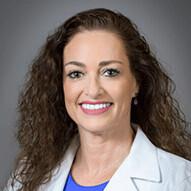 Michele Alkalay, MDPediatric Gastroenterologist
Michele Alkalay, MDPediatric Gastroenterologist Amal Aqul, MDPediatric Hepatologist
Amal Aqul, MDPediatric Hepatologist Sarah Barlow, MDPediatric Gastroenterologist
Sarah Barlow, MDPediatric Gastroenterologist Nandini Channabasappa, MDPediatric Gastroenterologist
Nandini Channabasappa, MDPediatric Gastroenterologist Aakash Goyal, MDPediatric Gastroenterologist
Aakash Goyal, MDPediatric Gastroenterologist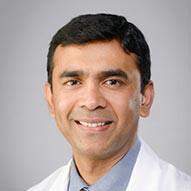 Bhaskar Gurram, MDPediatric Gastroenterologist
Bhaskar Gurram, MDPediatric Gastroenterologist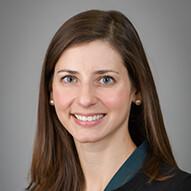 Lauren Lazar, MDPediatric Gastroenterologist
Lauren Lazar, MDPediatric Gastroenterologist Charina Ramirez, MDPediatric Gastroenterologist
Charina Ramirez, MDPediatric Gastroenterologist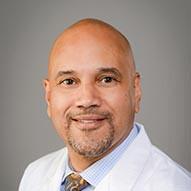 Norberto Rodriguez-Baez, MDPediatric Hepatologist
Norberto Rodriguez-Baez, MDPediatric Hepatologist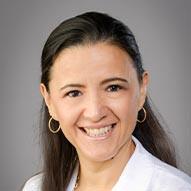 Isabel Rojas Santamaria, MDPediatric Gastroenterologist
Isabel Rojas Santamaria, MDPediatric Gastroenterologist Rinarani Sanghavi, MDPediatric Gastroenterologist
Rinarani Sanghavi, MDPediatric Gastroenterologist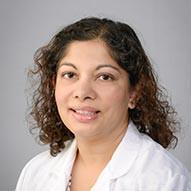 Meghana Sathe, MDPediatric Gastroenterologist
Meghana Sathe, MDPediatric Gastroenterologist Mhammad Gaith Semrin, MDPediatric Gastroenterologist
Mhammad Gaith Semrin, MDPediatric Gastroenterologist Luis Sifuentes-Dominguez, MDPediatric Gastroenterologist
Luis Sifuentes-Dominguez, MDPediatric Gastroenterologist David Troendle, MDPediatric Gastroenterologist
David Troendle, MDPediatric Gastroenterologist Phuong Luu, PA-CPhysician Assistant - Gastroenterology
Phuong Luu, PA-CPhysician Assistant - Gastroenterology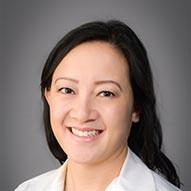 Van Nguyen, APRN, PNP-PCNurse Practitioner - Gastroenterology
Van Nguyen, APRN, PNP-PCNurse Practitioner - Gastroenterology Jennifer Peacock, APRN, PNP-PCNurse Practitioner - Gastroenterology
Jennifer Peacock, APRN, PNP-PCNurse Practitioner - Gastroenterology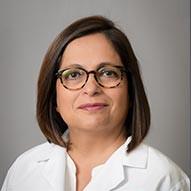 Shabina Walji-Virani, APRN, PNP-PCNurse Practitioner - Gastroenterology
Shabina Walji-Virani, APRN, PNP-PCNurse Practitioner - Gastroenterology